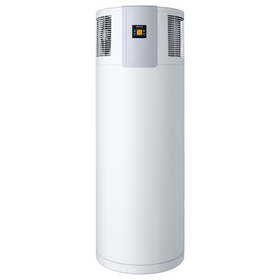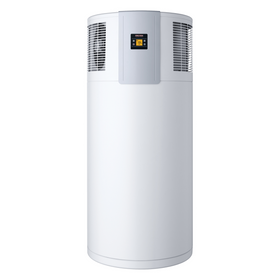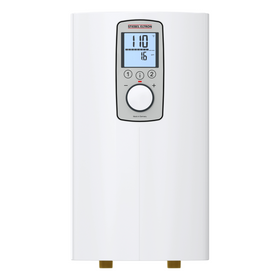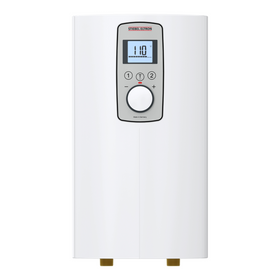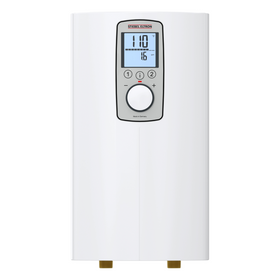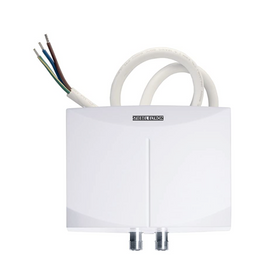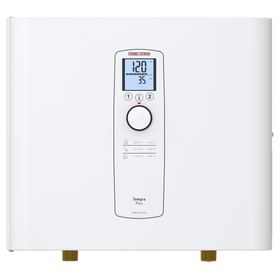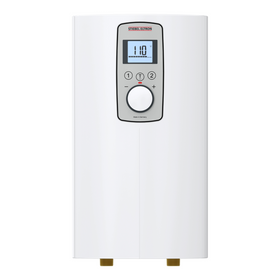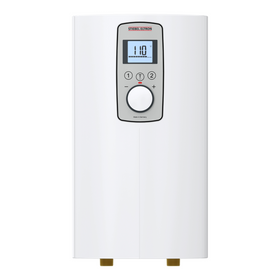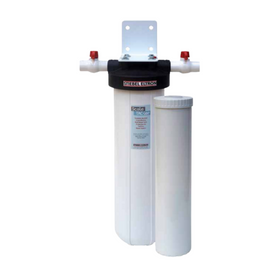
The Best Ways to Save on Your Water Heating Bill
Last Updated: Mar 17, 2025If you have ever been in the shower when the hot water tank fails, you probably know the importance of having a steady supply of hot water for your home. Hot showers and warm water for washing the dishes are luxuries that almost every household takes for granted. However, after home heating and cooling, hot water heating is the third most intensive energy use for residential homes. According to the U.S. Department of Energy, at least 12 percent of all residential energy usage goes towards hot water heating. That figure can rise drastically for individual homes with older hot water tanks (as much as 30-40%).
These simple tips for reducing your hot water heating bill can save you money while drastically reducing your household carbon footprint.
Table of Contents
- Does Lowering the Hot Water Thermostat Reduce Your Water Heating Bill?
- Only Use Hot Water When Necessary
- Does Taking Shorter Showers Reduce Your Water Heating Bill?
- Do Low Flow Water Fixtures Reduce Your Water Heating Bill?
- Do Faucet Aerators Reduce Your Water Heating Bill?
- Do Leaky Faucets Increase Your Water Heating Bill?
- Does Insulating Your Water Tank Reduce Your Water Heating Bill?
- Does Install a Timer on Your Hot Water Heater Reduce Your Water Heating Bill?
- Do New Hot Water Heater Reduce Your Water Heating Bill?
- Drain-Water Heat Recovery
- Do On-Demand Hot Water Recirculating Pump Reduce Your Water Heating Bill?
- Do Energy Star Appliances Reduce Your Water Heating Bill?

Does Lowering the Hot Water Thermostat Reduce Your Water Heating Bill?
There is virtually no scenario where you will need 105-degree water for your household uses. However, most water heaters routinely have high heat settings that require homeowners to mix the hot and cold water faucets to find a tolerable temperature. Lowering the thermostat on your water heater is a simple fix that can translate into lower water heating bills while also reducing the possibility of potential burns and scalding.
Only Use Hot Water When Necessary
In most homes today, hot water heating is directed towards every indoor water fixture. Whether you are brushing your teeth, washing your clothes, or taking a bath, hot water is probably available. Is it essential, however, to brush your teeth with warm water? Making the conscientious decision to reduce turning on the hot water valve can lead to significant reductions in your water heating bill. Even better, new home construction can avoid routing the hot water piping to certain water fixtures such as the washing machine. In almost every case, cold washing clothes and linens are entirely acceptable and will lower your water heating bill.

Does Taking Shorter Showers Reduce Your Water Heating Bill?
Taking shorter showers is a straightforward way to save both your water and energy bills. A 10-minute shower on a typical 2.5 gallon per minute showerhead will use 25 gallons of water. You could reduce your hot water demand to only 12.5 gallons of water by only showering for five minutes.
Do Low Flow Water Fixtures Reduce Your Water Heating Bill?
Low flow showerheads, faucets, and other types of low-flow fixtures also can reduce your hot water heating bill by reducing overall demand. Low-flow showers that are approved by the EPA WaterSense program will use under 2.0 gallons per minute. Showerheads and faucets that are 15-20 years older or more might even use three to four times as much water as the most efficient fixtures on the market today.
Do Faucet Aerators Reduce Your Water Heating Bill?
Homeowners can install faucet aerators on kitchen and bathroom faucets where hot water connections are present. The fact that this relatively low-cost investment will translate into immediate savings on both your water and water heating bills makes for a quick payback period. Faucet aerators can reduce your water flow from 0.5 GPM to 1.0 GPM with minimal to no noticeable change in operation, yet could save you 30% to 60%.

Do Leaky Faucets Increase Your Water Heating Bill?
According to the EPA, common household leaks account for almost 10,000 gallons of annual water waste, while ten percent of homes have leaks that waste 90 gallons or more per day. Leaky faucets and water pipes in homes lead up to billions of gallons of lost water every year. One way to avoid this loss is by installing water leak detectors in some critical parts of your plumbing system. Homeowners should especially prioritize areas where leaky water pipes might be connected to the hot water plumbing system. A cracked hot water pipe giving off one drip per second, for example, could lead to 3,153 gallons of wasted water per year. If that water is connected to a hot water pipe, you'll also be paying double for that wasted water.
Does Insulating Your Water Tank Reduce Your Water Heating Bill?
Making the switch to tankless water heaters could be a solution for homeowners looking to make a significant upgrade. Tankless water heater options don't have to spend energy keeping a large tank of hot water heated throughout the day. If you aren't ready to get rid of your old water heater tank for on-demand options, insulating the tank should be high on your list of priorities. Protecting the tank is especially important if you have a tank that is 15 years or older.
Newer hot water tanks do come with significant insulation, though adding an extra insulation blanket is a low-cost improvement that will improve any tank's efficiency. Similarly, insulating the piping for your hot water distribution system can also enhance your system's efficiency.
Does Install a Timer on Your Hot Water Heater Reduce Your Water Heating Bill?
Water heaters utilize enormous amounts of energy because they have to keep huge water tanks (the average tank size is around 80 gallons) hot around the clock. Some energy-conscious homeowners turn off their water heaters when they go on vacation or will be away from home for several days. However, heating water throughout the night is probably unnecessary unless you have the strange habit of tanking midnight showers.
Installing a timer on your water heater can give homeowners more control over when their heater is working. A small household with a relatively stable daily routine, for example, could choose to turn off their water heater from 8 am until 5 pm while they are at work. After showering, washing the dishes, and brushing their teeth, they could also turn off their heater from 10 pm until 6 am. Thus, a water heater could only be programmed to run for 6-8 hours each day. The exact time would depend on when people are in the home and when residents require hot water. These timers are inexpensive, easy to install, and are an excellent strategy for reducing your water heating bill.

Do New Hot Water Heater Reduce Your Water Heating Bill?
Several energy-efficient technologies can allow homeowners to enjoy hot water luxuries without the enormous energetic cost. Solar-powered water heating options are available for areas even with long, cloudy winters. Similarly, replacing older water heating tanks with newer, energy-efficient models can translate into immediate and noticeable savings. Heat pump water heaters are another alternative that provides significant cost savings.
Drain-Water Heat Recovery
Drain water heat recovery systems are innovative systems that allow homeowners to utilize the hot water that goes down the drain after a long shower or washing the dishes.
Do On-Demand Hot Water Recirculating Pump Reduce Your Water Heating Bill?
A hot water recirculating pump might also be a good investment if you have to wait several minutes for the hot water to start flowing through the faucet or showerhead. Traditional recirculating pumps might not reduce your water heating bill as they continuously circulate hot water through your pipes. Still, it can be essential in reducing your overall water usage. New, on-demand systems don't always run and can be activated by a timer, button, and even your smartphone. Once the pumps are activated, a lead time of one to two minutes is required for the water to heat up. When ready, hot water is made available almost instantly for some time. This saves on not only water but also the energy and costs associated with heating water.
Do Energy Star Appliances Reduce Your Water Heating Bill?
Upgrading to an Energy Star dishwasher or Energy Star washing machine is another way to reduce your overall hot water usage. The more efficient the devices, the less hot water that they will use. Of course, not every homeowner will have the financial resources needed to purchase significant investments like new appliances or the most efficient water heater on the market. However, saving on your water heating bill can also be achieved with no-cost habit and behavior changes along with low-cost purchases and improvements.
Tobias Roberts
Tobias runs an agroecology farm and a natural building collective in the mountains of El Salvador. He specializes in earthen construction methods and uses permaculture design methods to integrate structures into the sustainability of the landscape.

